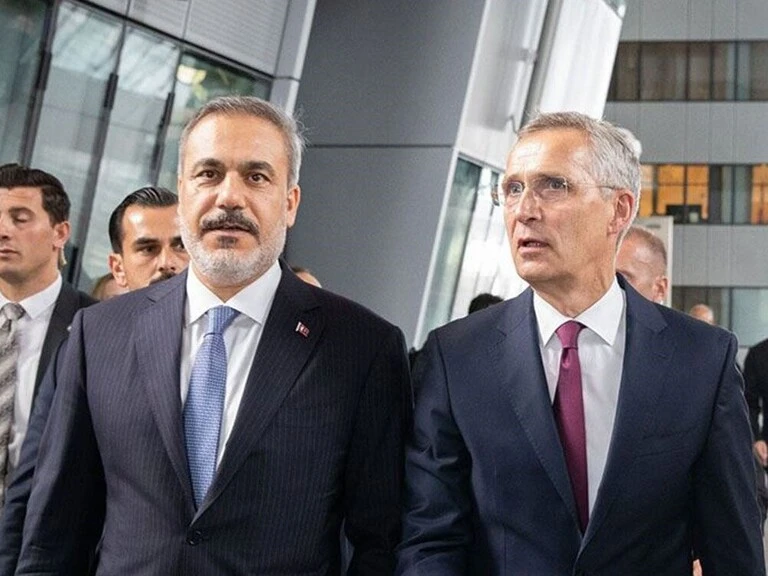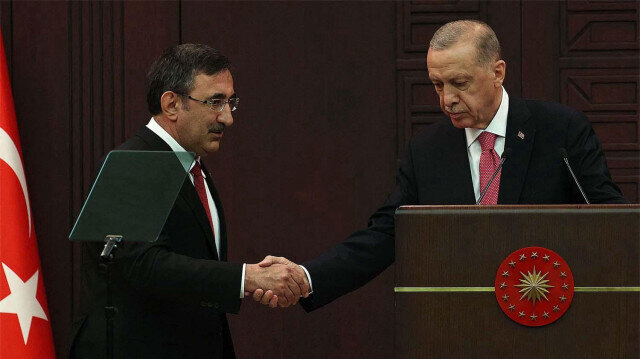EU Will Give Turkey Some Concessions But Under Some Conditions
EU Will Give Turkey Some Concessions But Under Some Conditions
26 September 2023 – Barçın Yinanç

The European Union has put the enlargement process back on its agenda. Turkey will once again miss a historic opportunity. There is a bit of a “willing buyer, willing seller” situation.
Turkey has no desire to try to catch the enlargement train. Ankara’s lack of appetite for democratic reform also plays into the EU’s hands. Nevertheless, it will be necessary to put a finger of honey in Ankara’s mouth as the enlargement process is revived.
But even this process will not be painless. The EU will again impose conditions on Turkey. So the new era will be just like the old one. In other words, there is nothing new on the West Coast. Let me elaborate on this issue.
Triggers of the Enlargement Rush: Ukraine War and US Elections
Not long ago, in 2021, at a summit in the Western Balkans (Serbia, Macedonia, Albania, Bosnia and Herzegovina, Kosovo, Montenegro), the EU refrained from drawing a clear accession perspective. A few months after this October 2021 summit, Russia’s invasion of Ukraine upset the balance. Even in the summer of 2022, the Balkan countries upset that Ukraine and Moldova’s candidacy applications were accepted in a matter of minutes, did not receive a clear date from the EU.
If the Ukraine war is one reason why enlargement is back on the agenda in 2023, another reason is the upcoming US elections. If Trump or a Trump-like Republican wins the elections, Europe will have to rely less on the US, especially against Russia.
Russia is flirting with far-right parties in Western European countries and has the influence to change the balance of domestic politics in Hungary and Bulgaria. Russia is trying to increase its influence even among EU members, and what it has done and might do in the Western Balkans, a region of economic, political, ethnic, and religious fragility, has mobilized European capitals once again.
Controversial 2030 Target
EU Council President Charles Michel said at the end of August that the EU should be ready to admit new members by 2030.
It is debatable how realistic is the date of 2030. But the bottom line is that the EU is at a historic crossroads to accept new members.
And of course, as is customary in Turkey-EU relations, Ankara will again miss a historic opportunity. The missed opportunity, of course, will not be Turkey’s membership. Even if the opposition had won the elections, it would not have brought Turkey to the point of advanced democracy in a short time.
Nevertheless, thanks to the reform process that had been initiated, accession negotiations could have been resumed -even if some member states were posing major difficulties. In addition, Turkey could have established healthier relations with the West on key international and regional issues.
This would have allowed Turkey to better capitalize on the new dynamic created by the accession negotiations and the international and regional opportunities that cooperation with the West brings, and to make the necessary domestic transformations in all the areas we deserve more quickly. This is why the opposition in Turkey has my grudge. So what will happen next?
EU’s Latest Turkey Report
Let’s start with the following statement from the European Parliament’s report on Turkey adopted on September 13th:
“The growing gap in values and standards between Turkey and the EU demonstrates that the Turkish Government has no intention of persistently and stubbornly closing this gap. Over the last few years, there has been a clear lack of political will to undertake the necessary reforms, particularly in the areas of the rule of law, fundamental rights, protection and inclusion, and the protection of all ethnic, religious, and sexual minorities; furthermore, the Turkish Government has shown no interest in respecting the Copenhagen criteria and ensuring alignment with EU policies and objectives.”
The government is outraged by this report, but has it taken a single action to negate all these findings? On the contrary, it has taken additional steps to confirm these findings, frustrating expectations that there might be a new era after the last elections.
Turkey’s Lack of Appetite for Democratic Reform Plays into the EU’s Hands
EU is not so sad about Turkey’s lack of appetite for democratic reform. On the contrary, European public opinion is still cold on enlargement. Even in the distant future, a new enlargement debate that included Turkey would have been very difficult for politicians. Now, in a debate in which Turkey would be completely excluded, it would be easier to justify the admission of new members.
And yet, just as Turkey rebelled against being left out when the EU opened its doors to Central and Eastern Europe in the 1990s, the fact that Ankara is not even mentioned when the EU welcomes a country like Ukraine, which until a few years ago was like a mini-Russia with its corruption and oligarchic structure, will lead to a Turkish backlash against European capitals.
After the elections, European capitals have already sought to increase cooperation channels with Turkey, even if limited. The first signal of this was given at the EU Foreign Ministers’ meeting in June. EU Foreign Affairs Chief Joseph Borell and the Commission were asked to prepare a “forward-looking strategic” report on relations with Turkey.
First, the European Commission will publish its “country report” in mid-October, as it does every year, but probably not an optimistic “status report” as there has been no progress in relations. As compensation, a “strategic” report will be published a few weeks later with a roadmap of potential areas of cooperation. And of course, as is customary in EU-Turkey relations, even the publication of this report will be preceded by contentious negotiations.
The first signal of this came at the end of August. Foreign Minister Hakan Fidan was expected to be invited to the informal “gymnich” meeting of Foreign Ministers in Toledo under the Spanish presidency. This meeting could have been a good opportunity to at least start a dialog on regional issues. Moreover, the meeting was being hosted by Spain, one of the few countries with a favorable view of Turkey.
According to the information received in Ankara, eight countries opposed Turkey’s invitation. And let’s make a note of this. At first, we could have assumed that Fidan was not invited because of the crisis between the TRNC and the UN in Cyprus. However, Ankara was informed that Fidan would not be invited before this crisis occurred. In another Turkey-EU classic, the EU missed the opportunity to start the new era with Turkey by softening the atmosphere.
Then, we found Oliver Varhelyi, the EU’s enlargement commissioner, whose visits to Turkey in his first three years in office did not exceed the number of fingers in one hand, rushing to Turkey in the first half of September when the European bureaucracy returned from vacation. And we heard optimistic statements from both sides on both the customs union and visa facilitation. For example, Fidan announced that the two sides would start talks on updating the customs union within a week.
What Conditions Can the EU Impose on Turkey?
The devil is in the details. The start of negotiations on updating the Customs Union requires political approval from European capitals. The talks will focus on what needs to be done for the negotiations to start.
Here too, the EU has two expectations: 1) The lifting of trade restrictions imposed by Turkey in the face of the disruptions in the Customs Union, 2) The application of the Ankara protocol to all member states, i.e. the opening of Turkish ports to Greek Cypriot ships.
In other words, the EU wants to put a finger of honey in Turkey’s mouth, but even this is conditional, and I find it very difficult to accept the second condition.
When it comes to visa issue… If we assume that the government will not make even a small move on the anti-terrorism law, which is one of the criteria for lifting visas, the most optimistic scenario is that visas for students and business people will be eased (not to say lifted). Of course, the delay in Sweden’s NATO membership, which is expected to take place at the beginning of October, could upset the optimistic scenarios.
 Turkish Political Scene After the Elections | By Burak Bilgehan Özpek, 26.09.2023
Turkish Political Scene After the Elections | By Burak Bilgehan Özpek, 26.09.2023
–
Will the Medium Term Program Make Turkey Greater? | By Enes Özkan, 26.09.2023
–
Highly Skilled Migrant: Melissa Vargas | By Osman Can Akdeniz, 26.09.2023
–
 EU Will Give Turkey Some Concessions But Under Some Conditions | By Barçın Yinanç, 26.09.2023
EU Will Give Turkey Some Concessions But Under Some Conditions | By Barçın Yinanç, 26.09.2023
–
 Where Inflation Brings Us: Saramago’s Mental Asylum | By Caner Gerek, 26.09.2023
Where Inflation Brings Us: Saramago’s Mental Asylum | By Caner Gerek, 26.09.2023
–


